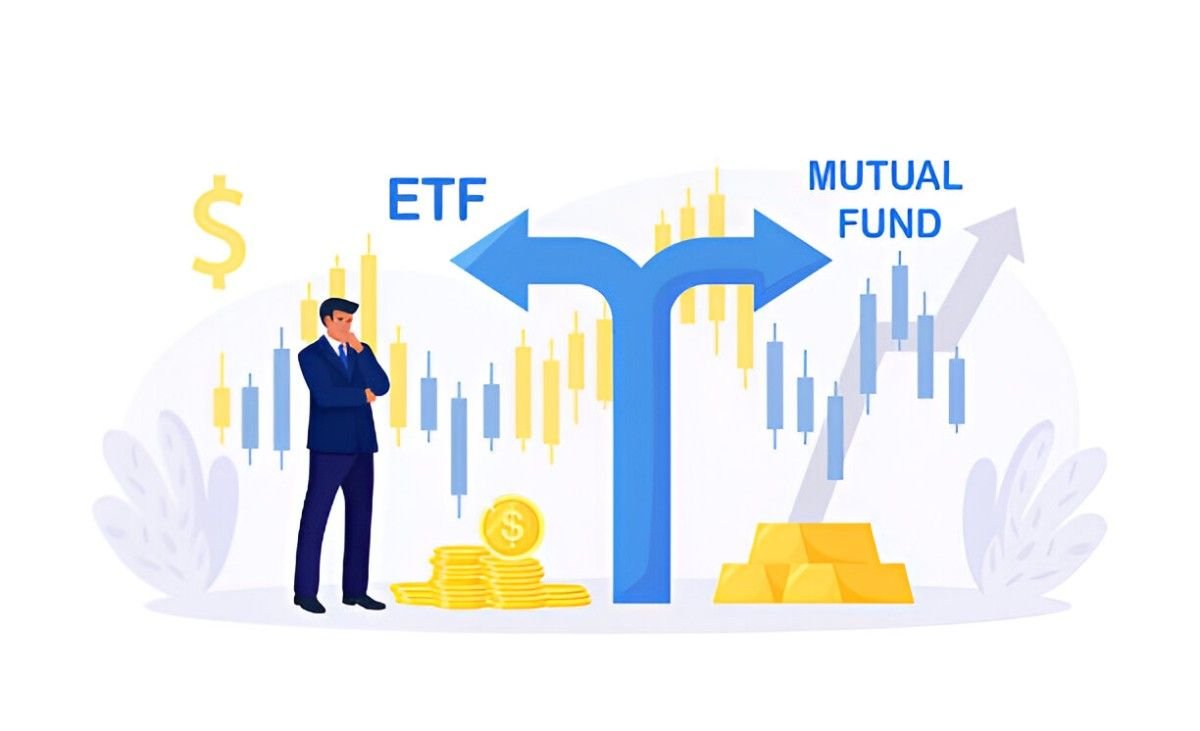As an investor, I often get asked: “Should I buy ETFs or mutual funds?” The answer depends on your goals, trading habits, and tax situation. While both pool money to invest in stocks, bonds, or other assets, they operate differently in critical ways. Below, I break down the key differences to help you decide which is best for your portfolio.
Table of Contents
1. Trading and Pricing
ETFs Trade Like Stocks
- Intraday Trading: ETFs (Exchange-Traded Funds) are bought and sold throughout the trading day at market prices.
- Bid-Ask Spread: You pay a slight difference between buying and selling prices (Spread = Ask\ Price - Bid\ Price).
- Example: If SPY (S&P 500 ETF) has a bid of $450 and an ask of $450.10, the spread is $0.10.
Mutual Funds Price Once Per Day
- End-of-Day Pricing: Orders execute after market close at the Net Asset Value (NAV).
- No Spread: You get NAV, but you can’t time intraday moves.
| Feature | ETFs | Mutual Funds |
|---|---|---|
| Trading Hours | Market Hours | After Market Close |
| Pricing | Real-Time | NAV at Close |
| Spread Cost | Yes | No |
2. Costs and Fees
Expense Ratios
- Both charge expense ratios, but ETFs are often cheaper (e.g., VTI at 0.03% vs. VTSAX at 0.04%).
- Some mutual funds have sales loads (e.g., 5% front-end fee), while ETFs never do.
Commissions
- Most brokers (Fidelity, Schwab) now offer commission-free ETF and mutual fund trades.
Tax Efficiency
- ETFs are more tax-efficient due to in-kind redemptions, reducing capital gains distributions.
- Mutual funds may trigger annual taxable gains, even if you don’t sell.
3. Investment Minimums
- ETFs: Buy as little as 1 share (e.g., $450 for SPY).
- Mutual Funds: Often require $1,000–$3,000 minimums (exceptions like Fidelity’s $1 minimum funds).
4. Automatic Investing
- Mutual Funds: Allow recurring auto-investments (e.g., $500/month into VTSAX).
- ETFs: Require manual purchases (brokers like M1 Finance offer partial-share auto-investing).
5. Tax Implications
Capital Gains Distributions
- Mutual Funds: If the fund sells profitable holdings, all shareholders pay taxes on gains.
- ETFs: Rarely distribute gains due to in-kind creation/redemption.
Example:
- Vanguard’s mutual funds (like VTSAX) use ETF share class to minimize taxes—unique to Vanguard.
6. Which Should You Choose?
ETFs Are Better If You:
✔ Want lower costs (typically cheaper expense ratios).
✔ Prefer intraday trading (e.g., hedging, options).
✔ Care about tax efficiency (fewer capital gains).
Mutual Funds Are Better If You:
✔ Like auto-investing (set-and-forget contributions).
✔ Prefer dollar-based investing (no share price concerns).
✔ Own them in tax-advantaged accounts (IRAs, 401(k)s).
Final Verdict
- For most investors, ETFs win on cost, flexibility, and tax efficiency.
- Mutual funds still make sense for automated, hands-off investing.
I personally use ETFs in taxable accounts (for tax savings) and mutual funds in retirement accounts (for auto-investing).





